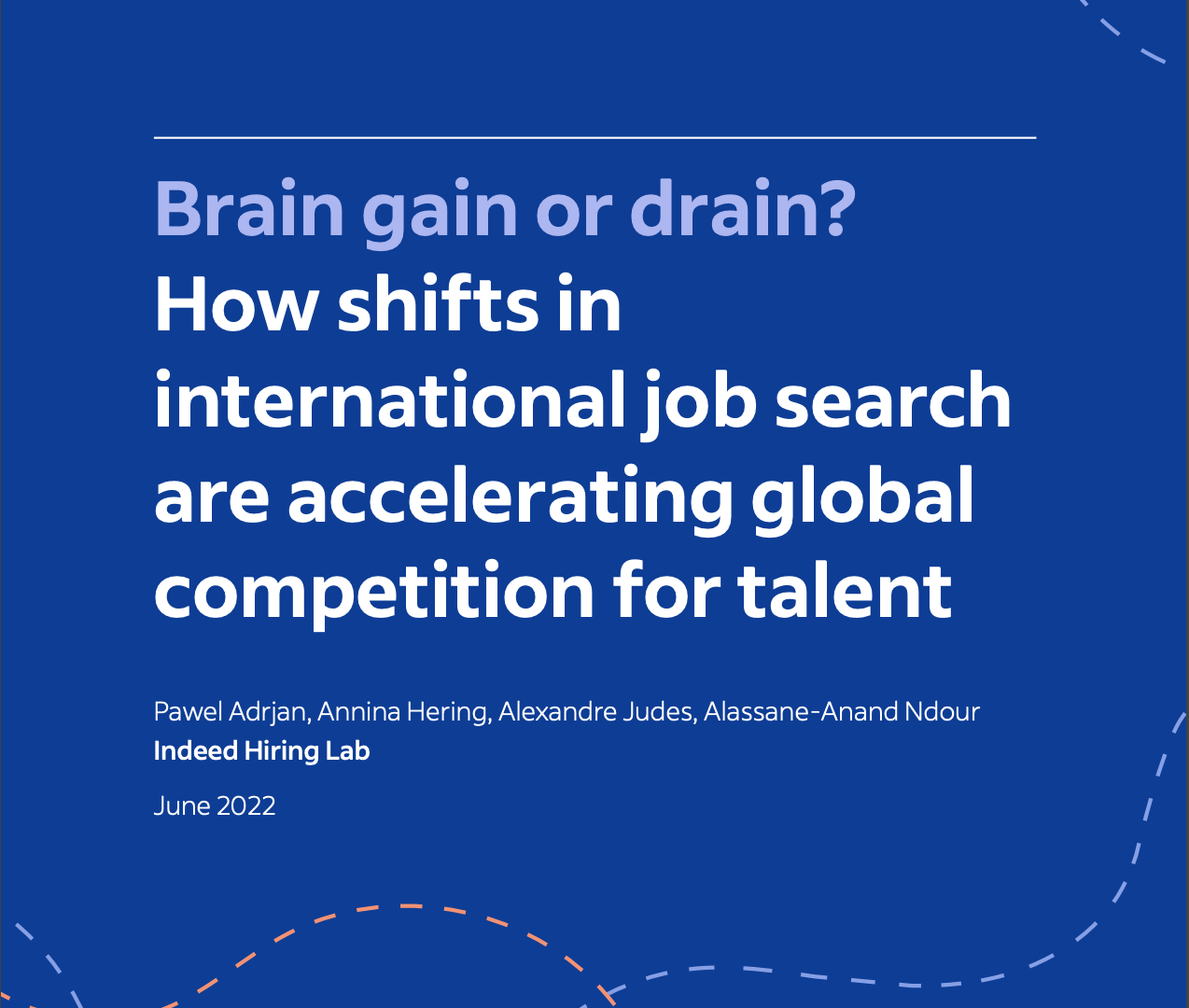The Covid-19 pandemic temporarily changed the migration picture by halting international travel and plunging the world into an economic crisis. Public health restrictions made it difficult for many people to move to another country for work, while job opportunities became scarce. But the pandemic is now ebbing, raising important and timely questions:
- What do current cross-border job search patterns suggest for the future of international migration in Europe?
- How are post-pandemic labour shortages, the rise of remote jobs and geopolitical instability transforming job search, by making it feasible for a significant share of the labour force to work anywhere in the world?
- Which countries stand to benefit?
- What can employers do to tap into the burgeoning pool of global talent?
Indeed Hiring Lab’s report, “Brain gain or drain? How shifts in international job search are accelerating global competition for talent,” looks at the drivers of the rebound in cross-border job search and the implications of this trend for countries and businesses across Europe. Leveraging timely and unique data from hundreds of millions of job searches and postings on Indeed, we show that against all odds, the activity of internationally mobile jobseekers is on the verge of returning to pre-pandemic levels.
We argue that going forward, the remote work revolution, widespread labour shortages brought about by the pandemic, and powerful long-term forces — such as digitisation and the ageing of the population — are likely to take international jobseeker mobility to new heights across all segments of the workforce. As a result, businesses will find themselves competing for talent ever more intensely in a global marketplace.
Well-prepared employers can position themselves to take advantage of these trends. The report provides an inventory of innovative practices that can guide recruiters and help employers navigate through the opportunities and challenges of post-pandemic European labour markets.
Download the full report here.



